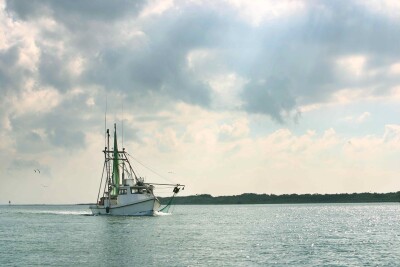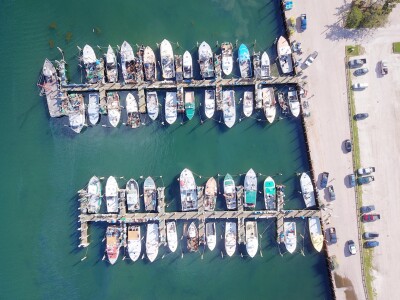Would the proposed Pebble Mine and its earthen containers of toxic byproduct stand up to Alaska’s seismic activity? This was the question on many minds at the beginning of the year, following a 3.6-magnitude quake in the Bristol Bay region in late January and a documented increase in earthquakes in the state over the last two years.
Expo Online — Pebble Mine Live Panel Update
A study funded by the Bristol Bay Defense Alliance concluded that the seismic reports used in the U.S. Army Corps of Engineers’ draft environmental impact statement were outdated and that the stability analysis was inherently flawed and understated the risk of tailings pond failures.
One month before that January quake, the bay’s communities got rocked by a CNN report documenting evidence that Alaska Gov. Mike Dunleavy had been lobbying on behalf of the Pebble Limited Partnership.
CNN obtained letters that showed “Dunleavy forwarded requests, on behalf of the state of Alaska, that were ghost-written by the Pebble Partnership to the White House, U.S. Army Corps of Engineers, and the Environmental Protection Agency asking them to do away with the EPA’s proposed protections for Bristol Bay and to fast track the Army Corps’ environmental assessment,” said a joint press release from the United Tribes of Bristol Bay and Commercial Fishermen for Bristol Bay on Dec. 20, 2019.
The letters also indicated that the Pebble Partnership had advance knowledge of EPA’s decision to eliminate Clean Water Act protections. Tom Collier, then-CEO of the Pebble Partnership, had denied any such knowledge at a U.S. House hearing in October 2019.
“I want to adamantly state that we had no such advance knowledge at all of the decision,” Collier said in his testimony to the House Transportation Subcommittee on Water Resources and Environment. “Nor did we know what the decision was.”
It would not be the last time Collier was accused of lying to Congress before he resigned abruptly on Sept. 23, 2020.
Two days before his resignation, the Environmental Investigation Agency published a series of recorded video calls showing Collier and Northern Dynasty President and CEO Ronald Thiessen boasting about access to Alaska Gov. Mike Dunleavy’s office, the White House chief of staff, the Army Corps of Engineers, as well as the partnership’s plan to deceive the public through the permitting process and open a back door to a massive mine in Alaska’s Bristol Bay region.
The scale of Pebble’s plans quickly became the focus of a push to investigate.
Collier testified at the House hearing in October 2019 that “Pebble has no current plans, in this application or in any other way, for expansion.”
The tapes, however, “reveal Pebble’s apparent plans to use the infrastructure included in its mine plan to open up other expansive [swaths] of western Alaska to mining, including through the activation of the Donlin Mine, a project that already has federal permits and could become economically viable overnight if the Pebble project is approved,” said the agency when it released the tapes.
On Tuesday, Sept. 29, Washington Sen. Maria Cantwell called for a Justice Department investigation into possible discrepancies between comments made by Collier and Thiessen in the recorded calls and the project’s scope and plans in legally binding federal documents.
“The Pebble Tapes make one thing very clear: The Pebble Limited Partnership will stop at nothing to build their disastrous mine, even if it means lying on their permit application, deceiving their investors, or possibly perjuring themselves in front of Congress,” said Cantwell in a statement. “The Department of Justice should investigate what is disclosed in these disturbing Pebble Tapes.”
Meanwhile, in Alaska, local Reps. Bryce Edgmon (D-Dillingham) and Louise Stutes (R-Kodiak) penned a Sept. 29 letter to Dunleavy, asking the state’s top executive not to stand with the Pebble Limited Partnership as it sought to advance its permit with the U.S. Army Corps of Engineers.
“Our concerns are not hypothetical,” the letter declares. “To this point, you and others within your administration have worked with PLP to advance a proposed mine that has no basis in reality and has no place in Bristol Bay.”
The reps laid out the administration’s “well-documented work… on behalf of the PLP,” noting that public records and media reports contradict the administration’s dismissal of the allegations resulting from the tapes.
“It appears that you and other members of your administration, including your resource agency commissioners and staff, are working with PLP on a compensatory mitigation plan for the proposed Pebble mine that would implicate uses and activities on State land in Bristol Bay,” the letter reads.
The governor responded on Oct. 6, noting that his “role is to ensure that each project is subject to a fair and rigorous review process, and that every opportunity to create thousands of jobs is fully explored.”
“Regardless of the fate of the Pebble project, let me be absolutely clear: I will not stop fighting for the people of the Bristol Bay region who continue to suffer from an acute lack of economic opportunity,” Dunleavy wrote.
On Oct. 15, Alaska’s Sen. Murkowski spoke at the annual convention of the Alaska Federation of Natives calling Pebble the wrong mine in the wrong place, a rallying cry of the mine’s opponents and an echo of the late Sen. Ted Stevens.
Our Expo Online panel discussion on Thursday, Nov. 19, will review where the Pebble Mine permit stands and the next steps for advocates of Bristol Bay communities and fisheries. You can find that discussion at NationalFisherman.com/expo-online.







